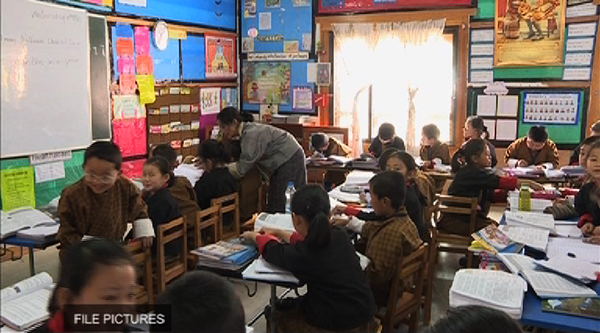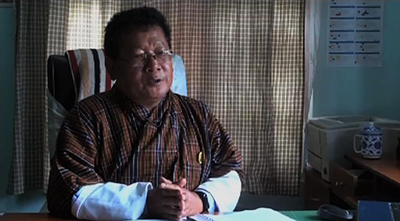 As assessment for classes pre-primary to IX and XI begins from this month, it will be based on three strategies the Royal Education Council (REC) prepared. The options are based on students’ accessibility to various e-learning platforms and the geographical scenario. It will facilitate a smooth promotion and certificate for progression of students to higher grades this academic year.
As assessment for classes pre-primary to IX and XI begins from this month, it will be based on three strategies the Royal Education Council (REC) prepared. The options are based on students’ accessibility to various e-learning platforms and the geographical scenario. It will facilitate a smooth promotion and certificate for progression of students to higher grades this academic year.
One of the strategies teachers and schools can use is based on BBS TV broadcast lessons where there will be a few questions at the end of every video lessons for students to respond. The teachers are expected to correct them and maintain records.
 Wangpo Tenzin, the Dean for Curriculum Development Centre at the REC, rolls out different plans for assessing the students. “For those schools which are far away and the modern amenities are not available and not accessible, we have been proposing for mobile teacher visiting the villages and gathering and teaching small groups of children and at the same time conducting an objective type of class tests and then maintain records. We are also looking for and what we agreed is through assignments. So children can be given two to three assignments on different themes or subjects and students will submit to teachers and teachers will do the evaluation, provide feedback and then maintain records,” he said.
Wangpo Tenzin, the Dean for Curriculum Development Centre at the REC, rolls out different plans for assessing the students. “For those schools which are far away and the modern amenities are not available and not accessible, we have been proposing for mobile teacher visiting the villages and gathering and teaching small groups of children and at the same time conducting an objective type of class tests and then maintain records. We are also looking for and what we agreed is through assignments. So children can be given two to three assignments on different themes or subjects and students will submit to teachers and teachers will do the evaluation, provide feedback and then maintain records,” he said.
Depending on the situation, respective schools can use any of the options to keep students engaged, maintain the momentum of learning and assess them for higher promotion.
For classes PP-VI, with no formal examinations, the schools will use the adapted curriculum and assess students based on the strategies the REC prepared. And for classes VII to IX and XI, there will be no formal examinations as long as the adapted curriculum is followed. But if schools re-open for the grades within July, depending on the directive of the government and the education ministry, the prioritised curriculum will come into being with formal examinations.
According to the Dean, going for prioritised curriculum wouldn’t be feasible if reopening of schools is delayed beyond August, “because through the prioritised curriculum what we are intending is that we are able to teach the essential elements or concepts or topics and idea in the different subject so that children are able to roughly achieve the learning outcomes which are designed for the particular grade for the academic year. So if the school reopening prolongs or goes beyond August, I do not see good reasons to go for prioritised curriculum and I would anticipate that adapted curriculum will be followed by these classes till the end of the year.”
Meanwhile, the board examinations will begin with practical examination from mid of November followed by the theory exam. The question paper patterns and duration of the papers will remain the same. To minimise the movement of teachers, respective subject teachers will validate the project works and oral tests instead of the examiners. The marks will be submitted to the BCSEA online.
Similarly, for classes X and XII, schools will grade the Socially Useful Productive Work or SUPW based on the previous year’s record. However, there will be no SUPW grading for classes VII to IX and XI. At the same time, students following the adapted curriculum will not be ranked in their progress report this academic year.
Sonam Pem









